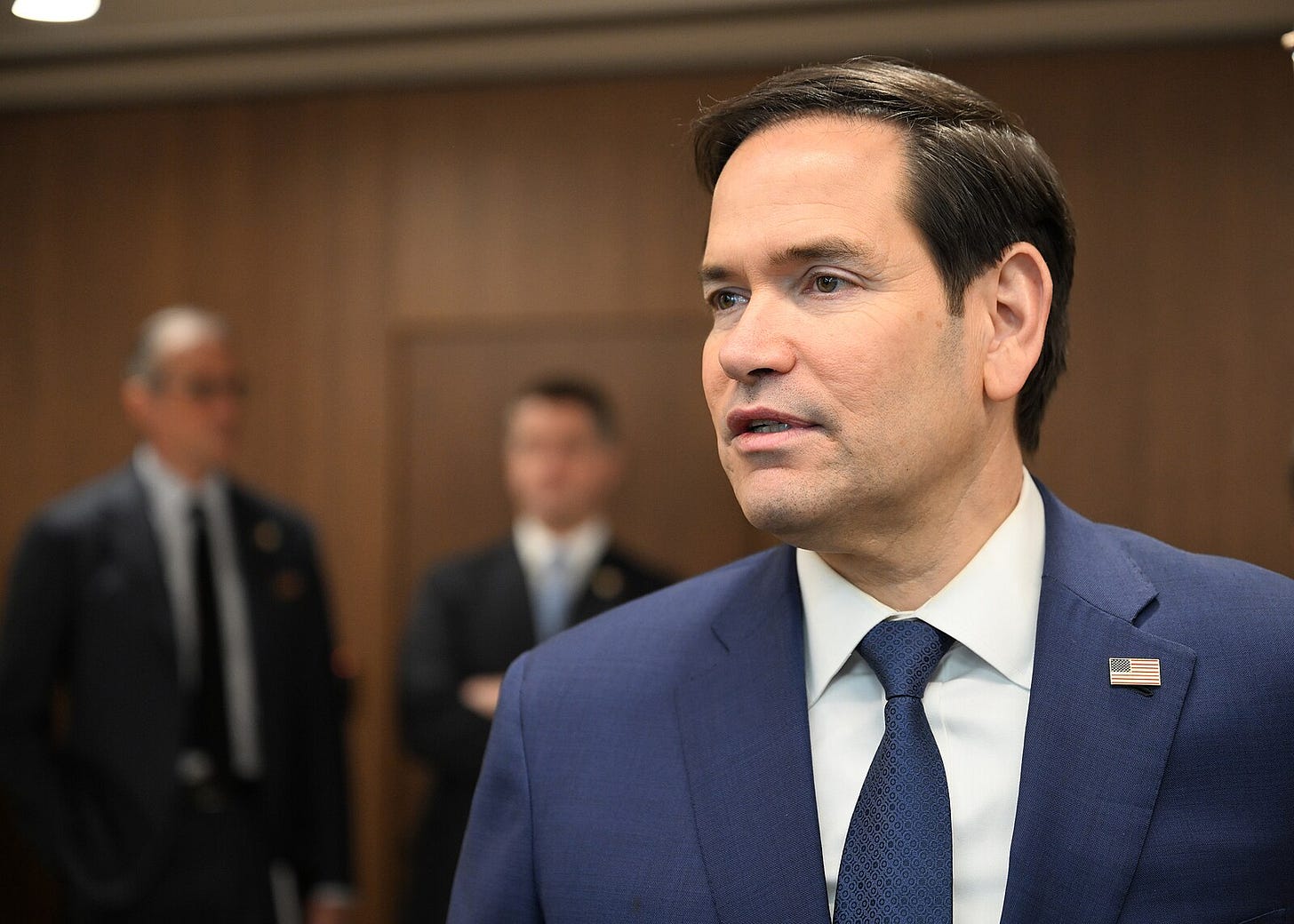Will AI save business travel?
Deepfakes are cheap, fast and convincing — but they can't shake your hand
I spoke to my mum last night. Or, at least I think I did — I probably should have hung up and called her back, just to be safe. The voice on the other end sounded legit — a lilting Long Island accent, undiminished by a decade (or four) in North London.
I could have requested she confirm her maiden name, I suppose, but didn’t see the need. And anyway, the real test would have been whether she knew my blood type (she doesn’t) or if she could pronounce the words “squirrel” and “crisp” (she can’t). You can never be too careful these days.
Yesterday, The Washington Post revealed that an imposter posing as US Secretary of State Marco Rubio had contacted three foreign ministers, a US governor and a member of Congress via text and Signal, the encrypted messaging app. The individual used an AI voice to mimic Rubio’s voice and writing style, using the realistic-sounding address “Marco.Rubio@state.gov”, which is not his real account.
This is not even the first time this year when a senior administration officials was targeted. In May, the phone belonging to White House chief of staff Susie Wiles was breached, leading to calls and messages being sent in her name to senators and senior business leaders, potentially leaking sensitive information. An investigation was launched, though the president seemed unconcerned, noting “There’s only one Susie.” Righto.
Impersonating high-level public officials is not an entirely new phenomenon, of course. In 1995, the late Queen spent the best part of 20 minutes speaking with a man she presumed was the prime minister of Canada, but turned out to be Canadian impressionist, Pierre Brassard. In 1998, Tony Blair took some time out of his day to chat with a pretend William Hague, who offered the prime minister a copy of a Cher exercise video.
Blair was amused by the call and used it to good effect at a subsequent PMQs. Fidel Castro was however less pleased to be pranked by a Miami radio DJ in 2004 claiming to be Venezuelan leader Hugo Chavez, unleashing a torrent of abuse. But the point is, you used to have to be a half-decent impressionist to get through. Today, all you need is a bit of software.
I like to think I’m fairly alive to the threat of this sort of thing. I never answer my phone from an unknown number, only ever contact my bank through the app, and generally assume most things online are suspect. But we are all vulnerable. Perhaps you have not slept well, or you were expecting a call from your energy provider, or the person on the phone just sounded convincing. None of us are too ‘smart’ to fall for it at least once.
The future is IRL
Whenever I read these sorts of accounts, I become ever more convinced that the rise of AI, while being very good for antisemitism and neo-Nazism on X, will prove to be a boon for all manner of in-person activities. In a world where you cannot be completely sure you are speaking with your own bank — let alone mother, husband or child — the safest bet may be to just show up.
This shift will have professional consequences too. Sure, you can meet clients via Zoom and sign contracts on Docusign, but wouldn’t basic due diligence require at least one face-to-face? Might insurers, accountants, even governments start to insist on it? If so, far from killing off business travel, AI could end up saving it. Time to invest in mid-range hotels with ample conference room facilities?
At a broader, cultural level, we may be entering an era where trust is increasingly scarce. In a world where deepfakes and synthetic voices are cheap and pervasive, what becomes rare — and therefore valuable — is certainty. And that will often require proximity: in-person meetings, sweaty handshakes — all the rituals we thought technology would spare us from.
There is almost certainly an equity element to all this. It is not difficult to imagine a near future in which wealth is measured not by tech adoption, but the freedom to opt out of it. And the real luxury good becomes not an AI assistant, but the ability to say, “I met them myself. I know it was them.”







It's such a dangerous technological "advancement". Something that will be promoted as being for our convenience, or greater security, will no doubt turn out to be the complete opposite. I urge all your followers to push back in these areas, maintain that freedom to say "no", especially against the current drive for digital ID services. Yes, it might be being setup and run by your Government. No, that doesn't mean your identity is safe in their hands! Our authorities can't even manage to empty the bins, do you really trust them to keep your details safe?! And how long will it be before the technology is so advanced that we can no longer rely on an image ("photo") or moving picture clip ("video") as "evidence" because we cannot be sure it hasn't been computer-generated and we cannot drill down into the file details to ascertain the credentials.